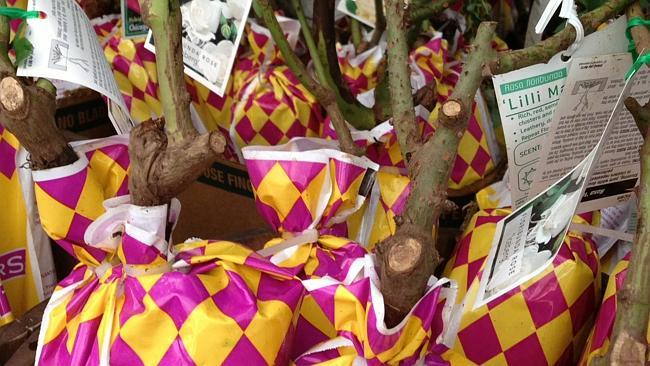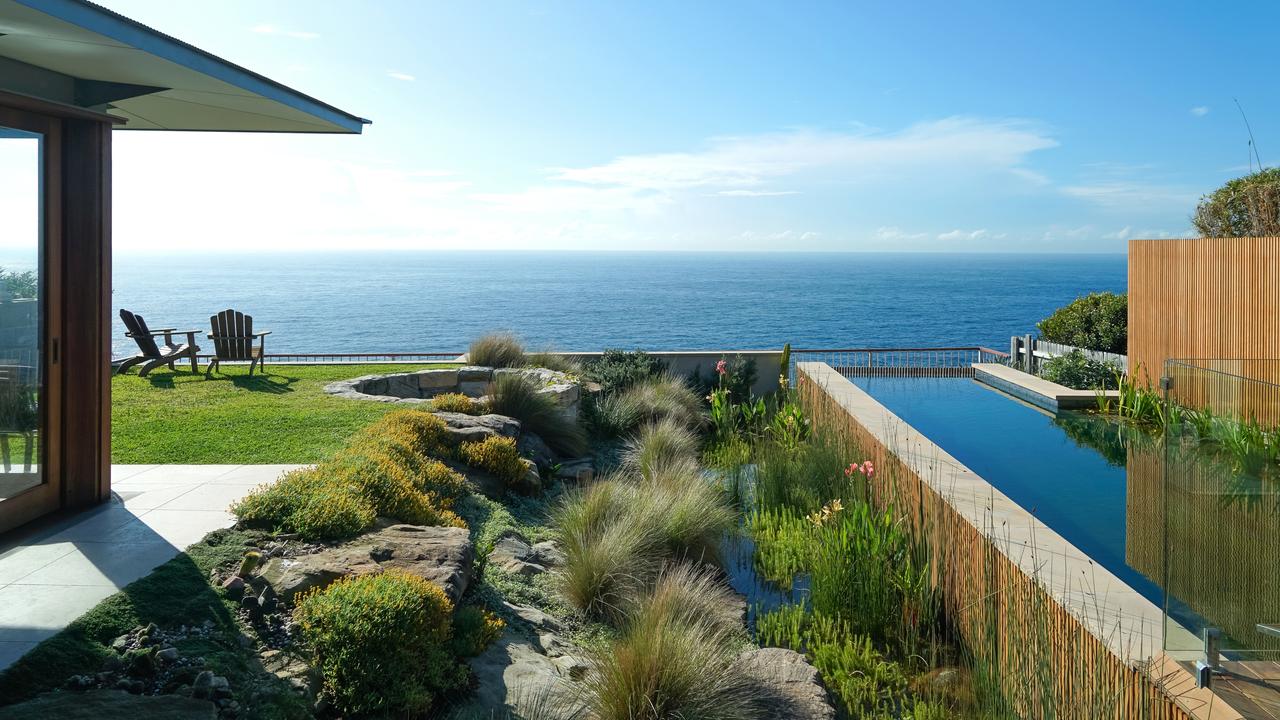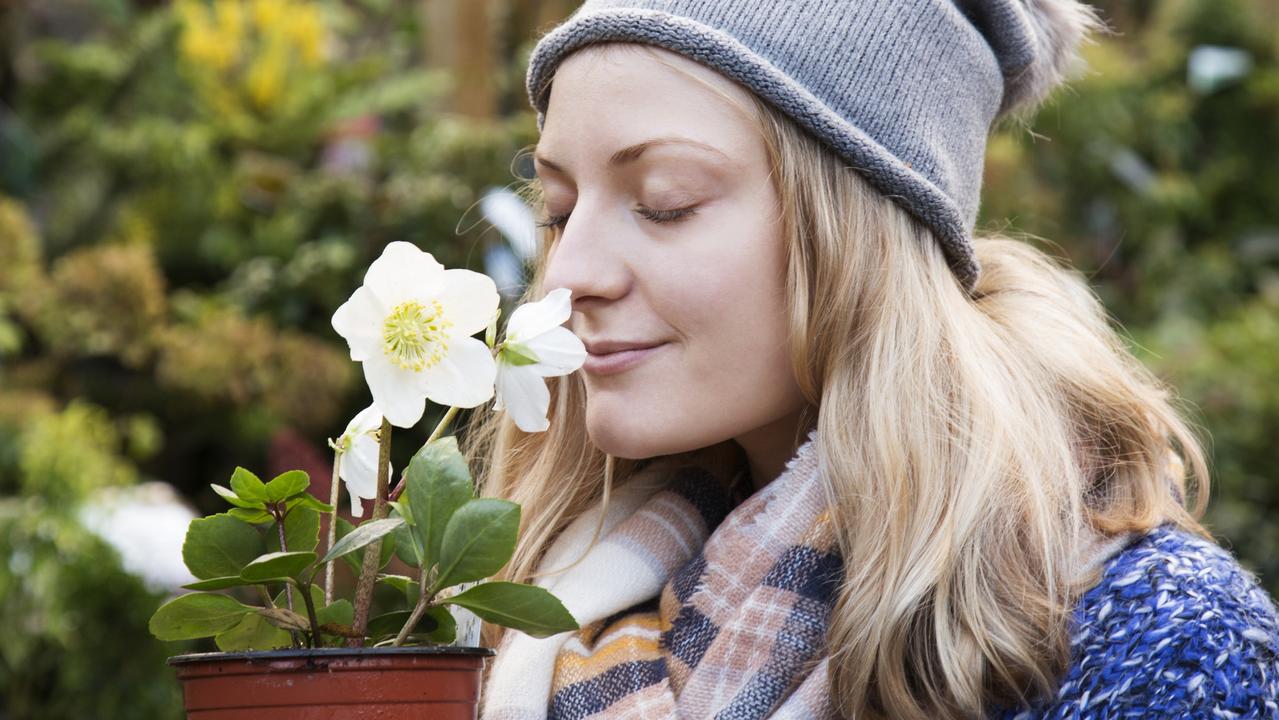Bare-root plants sleep through winter and are easily transplanted
Deciduous plants become dormant in winter so they can survive being dug up, pruned, packaged and shipped to you.

Midwinter is the time to buy deciduous trees as bare-root plants, an alternative to buying them the regular way in pots.
It’s not only cheaper but offers access to a wider range of varieties through mail order from specialist suppliers.
Typically they’re available only between June and August. Bare-root is the traditional growers’ term but it seems there’s a cheeky trend to call them “nude” plants.
Because deciduous plants become dormant over winter they can survive the process of being dug from the ground and having their roots and sometimes shoots pruned back severely, before being packaged and shipped, sometimes waiting for weeks in nurseries for someone to take them home and plant them. In spring, with the warm weather, they resume growing quite happily in their new home.
Roses are commonly sold bare-rooted but it’s a terrific way to buy ornamental trees such as maple, elm, birch, ash, crabapple and dogwood.
For those planting an avenue or a property boundary, multiple bare-rooted trees are much lighter and easier to manage than large potted specimens, and can grow just as large by the following year.
Deciduous edibles
Many home gardeners have a keen interest in fruit and nut trees. Stone fruit, apples, pears, quinces, persimmons, figs, mulberries and others offer exciting choices.
Even better, most are now available as dwarf trees that are ideal for smaller gardens. The fruit is still full size but typically the trees are less than 2m tall. Some grow as narrow columns, such as Fleming’s Ballerina and Skinny range; others, such as PlantNet’s Backyard Beauties range, are choice eating varieties grafted on to a dwarfing rootstock. Dwarf trees allow you to fit more varieties into your garden, but you can also save space by planting two types of the same fruit in the one hole. They’re suitable to grow in large pots and can also be trained as espaliers against a sunny wall.
How to choose
When selecting what types to grow, the most important factor is your climate, as most deciduous fruit trees need cold. Chill units are the number of hours in winter below about 7C (PlantNet has an excellent guide on its website). In warmer areas you must choose low chill varieties or you won’t get any fruit.
If you live in a subtropical area, the yellow-fleshed form of Angel peach is particularly good, as are the varieties in PlantNet’s Tropical Sensations range.
Pollination is the next hurdle. Apples and pears need to cross-pollinate, so you need to buy two different, but compatible, varieties. Most stone fruits self-pollinate, except for some plums and cherries. Different varieties crop at different times, so choose early, mid and late-season types to extend your harvest season.



